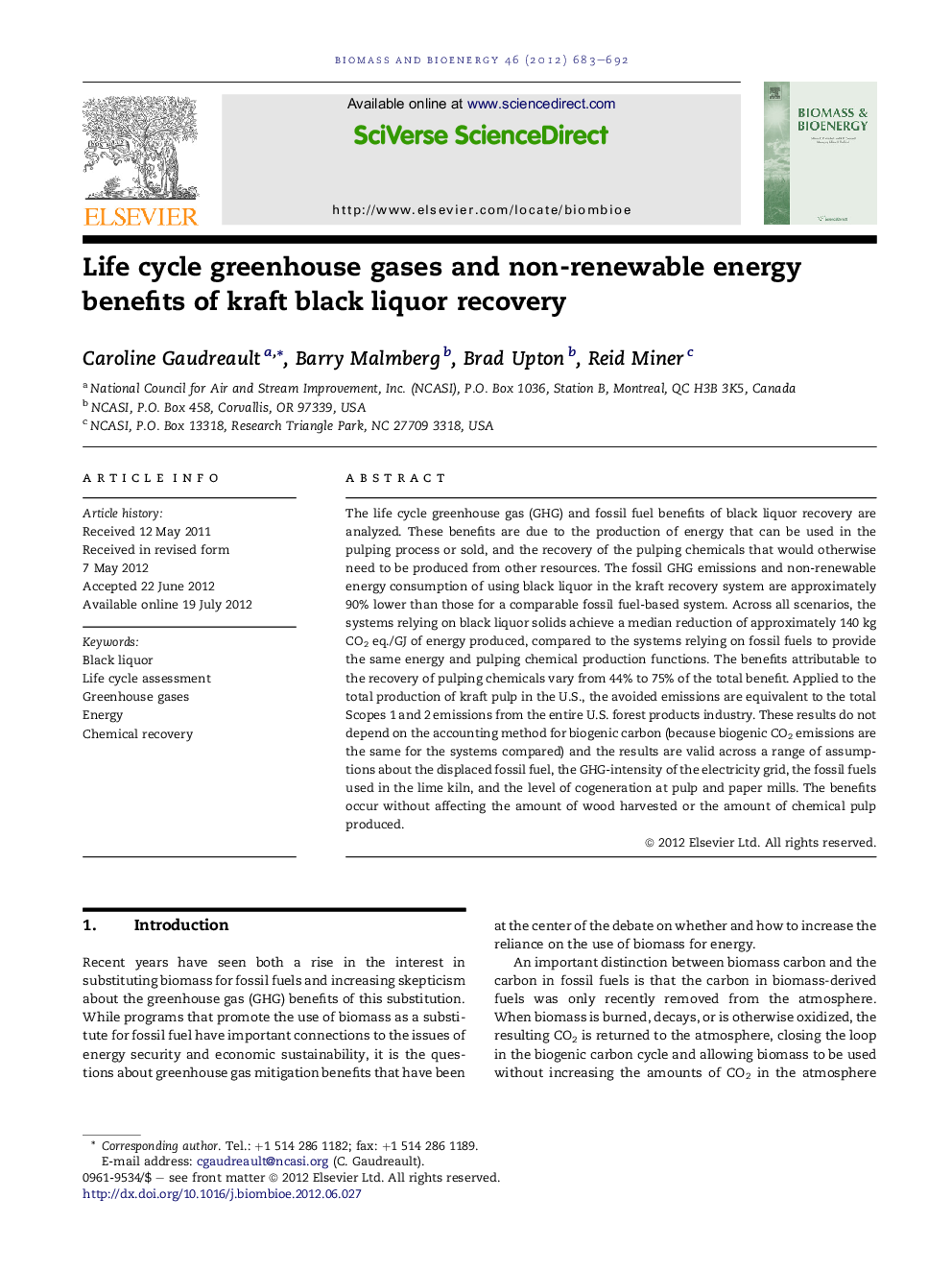| کد مقاله | کد نشریه | سال انتشار | مقاله انگلیسی | نسخه تمام متن |
|---|---|---|---|---|
| 677201 | 1459847 | 2012 | 10 صفحه PDF | دانلود رایگان |

The life cycle greenhouse gas (GHG) and fossil fuel benefits of black liquor recovery are analyzed. These benefits are due to the production of energy that can be used in the pulping process or sold, and the recovery of the pulping chemicals that would otherwise need to be produced from other resources. The fossil GHG emissions and non-renewable energy consumption of using black liquor in the kraft recovery system are approximately 90% lower than those for a comparable fossil fuel-based system. Across all scenarios, the systems relying on black liquor solids achieve a median reduction of approximately 140 kg CO2 eq./GJ of energy produced, compared to the systems relying on fossil fuels to provide the same energy and pulping chemical production functions. The benefits attributable to the recovery of pulping chemicals vary from 44% to 75% of the total benefit. Applied to the total production of kraft pulp in the U.S., the avoided emissions are equivalent to the total Scopes 1 and 2 emissions from the entire U.S. forest products industry. These results do not depend on the accounting method for biogenic carbon (because biogenic CO2 emissions are the same for the systems compared) and the results are valid across a range of assumptions about the displaced fossil fuel, the GHG-intensity of the electricity grid, the fossil fuels used in the lime kiln, and the level of cogeneration at pulp and paper mills. The benefits occur without affecting the amount of wood harvested or the amount of chemical pulp produced.
► Black liquor, a by-product of kraft pulping, represents about half of the energy used in the paper industry.
► The greenhouse gases (GHG) benefits of black liquor recovery compared to an equivalent fossil fuel system were analyzed.
► The GHG emissions of the black liquor system are approximately 90% lower than those for the fossil fuel system.
► The benefits from the recovery of the chemicals vary from 44% to 75% of the total benefit.
► These avoided emissions are equivalent to the total Scope 1 and 2 emissions from the U.S. forest products industry.
Journal: Biomass and Bioenergy - Volume 46, November 2012, Pages 683–692